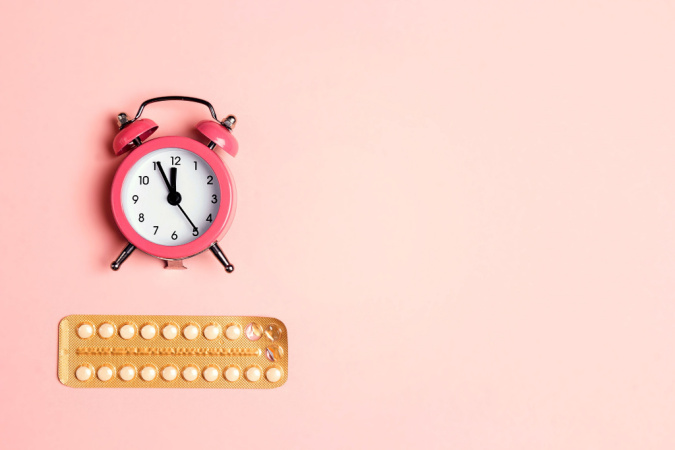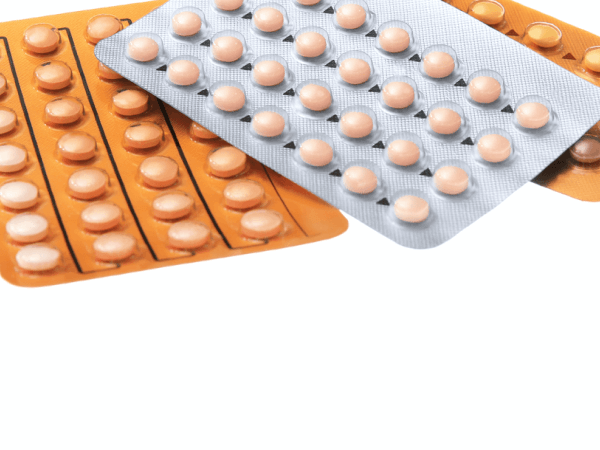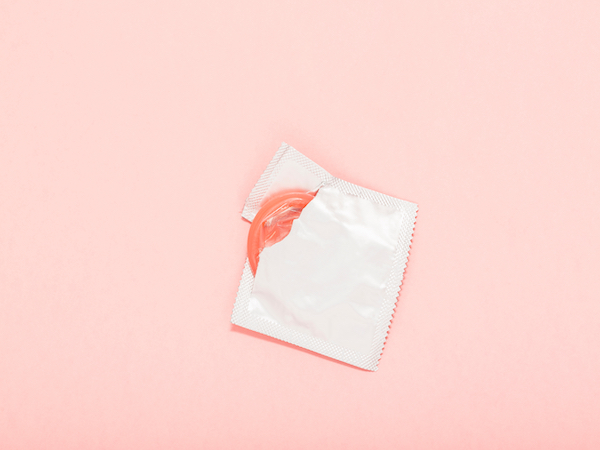There is a lack of meaningful research correlating birth control to increases breast size, meaning this may not be your best option if this is the main benefit you are striving for.
This article explores the side effects of birth control pills, including whether or not they are capable of increasing your breast size. Keep reading to learn about the most common side effects you can expect to experience from birth control pills and why a long-term increase in breast size is likely not one of them.
Common side effects of birth control
As with any medication, taking birth control may produce common side effects. Side effects from birth control typically only occur during the first one to two months of use, subsiding once the body adjusts to the change in its hormonal chemistry.

Get birth control delivered to your door
Fast online assessment with a Canadian nurse practitioner. Choose your method, get your prescription, never run out.
These side effects often include:
- Breast tenderness
- Breakthrough bleeding
- Headaches
- Nausea
- Bloating
- Mood changes
- Temporary weight gain
- Increased skin oiliness
As stated, these side effects should resolve on their own after one to two months of consistent use of birth control. These side effects should be mild. Contact your healthcare practitioner immediately if they are severe or persist past the first couple of months of consistent use.
More serious side effects can occur in rare cases requiring immediate medical attention. These include:
- Brown or discoloured spots on the skin
- Severe headaches or migraines
- Lumps in the breasts
- Significant changes in menstrual bleeding
- Increased blood pressure (a link between high-dose estrogen-containing birth control and high blood pressure. Make sure to discuss the risk factors of hypertension with your healthcare practitioner before starting birth control)
- Pain, swelling, or tenderness in the abdominal area
- Symptoms of a urinary tract or vaginal infection
Additionally, certain risk factors can make certain people incompatible with estrogen-containing birth control (also called combination birth control pills). These risk factors include:
- Personal or family history of blood clots, stroke, and heart problems
- Migraines with aura
- History of or current occurrence of high blood pressure
- Smoking
Before starting birth control pills, always discuss the possible risk factors resulting from your medical history and lifestyle habits with your healthcare practitioner.
Understanding hormonal birth control
All birth control pills are a type of hormonal birth control. This form of birth control is highly effective at 91% with typical use and 99.7% with perfect use.
Although there are many different types of birth control pills, they can all be categorized into one of two main types:
- Combination Pills: Combination pills contain two hormones: estrogen and progesterone (or the synthetic version, progestin). The advantages of combination pills include decreased acne, decreases in unwanted body and facial hair growth, reduced risk of certain cancers (endometrial, ovarian, and colon), reduced risk of fibroids, and reduced risk of ovarian cysts. However, due to certain health risk factors, estrogen is not the best choice for everyone.
- Progestin-Only Pills: Progestin-only pills (also called the mini-pill) are the alternative to combination pills that do not contain estrogen. These pills are considered safer for anyone who should not take estrogen-containing birth control. Some examples: people who are over the age of 35 and smoke, who currently have or have a history of breast cancer, who currently have or have a history of high blood pressure, who have risk factors for blood clots, or who are breastfeeding.
In addition to preventing pregnancy, hormonal birth control pills can also help to regulate menstrual cycles, reduce the severity of menstrual cramps and flow, and decrease the severity of premenstrual symptoms (PMS).
Besides birth control pills, other forms of hormonal contraception include:
- Contraceptive patches: Contraceptive patches are worn on the skin for seven days at a time for three consecutive weeks. In the fourth week, the patch is removed, allowing a regular period to occur during a planned hormone-free break. Patches release estrogen and progestin into the bloodstream.
- Vaginal rings: Vaginal rings are soft, flexible, clear plastic rings that are self-inserted into the vagina and left in place for three weeks at a time. Like patches, a ring is removed entirely in the fourth week, allowing a regular period to occur. Rings slowly release estrogen and progestin.
- Intrauterine contraception (IUC): An IUC is a T-shaped device surgically inserted into the uterus by a healthcare practitioner. IUC’s can be left in place for 3 to 10 years. In this form of contraception, the hormone levonorgestrel is released. IUC’s can also come in the non-hormonal form.
- Injectable contraception: Injectable contraception — also called the birth control shot — is administered by a healthcare practitioner in either your upper arm or buttocks four times a year (or roughly every 12 to 13 weeks). Birth control shots contain progestin but not estrogen.
- Contraceptive implant: Contraceptive implants were recently approved for use in Canada in 2020. These implants are 4 cm. long flexible rods inserted just beneath the skin in the upper arm. Implants release progestin continuously into the bloodstream and can be left in place for up to three years.
Does birth control increase breast size? The impact of hormones on the body
Hormones impact the body in many different ways, including:
- Metabolism function
- Appetite
- Heart rate
- Sleep cycle regulation
- Reproduction
- Mood and stress levels
Your hormone levels are altered whenever you take a hormonal medication, such as birth control pills. As a result, some of these impacts can be altered as well.
For instance, when starting birth control, many women experience changes to their appetite and/or sleep schedule. Since both appetite and sleep cycles can impact a person’s body weight, this can change the person’s weight.
This weight change’s longevity depends on how long the person experiences birth-control-related side effects and their own lifestyle habits.
Although temporary weight gain is sometimes seen as a starting side effect of birth control pills, there is no clear link between the use of birth control and weight gain. The same goes for fluid retention — there is limited meaningful evidence to prove that birth control causes increased fluid retention directly.
However, some researchers have hypothesized that birth control pills could result in weight gain if they indirectly lead to fluid retention and increased body fat.
Overall, the research regarding birth control and weight gain is limited and existing studies have not found conclusive evidence suggesting a relationship between hormonal contraception and weight gain.
So, back to the question, does birth control increase breast size?
Directly, no, birth control does not increase breast size. Due to the fat stores in your breasts, however, a change in breast size may occur due to weight gain from changes in appetite or the function of your metabolism.
Extreme weight gain is not an average side effect of birth control pills and should be discussed with your healthcare practitioner if it occurs.
Is it safe to use birth control just to increase your breast size?
Although birth control pills are generally considered safe, taking them solely to increase your breast size may produce highly varied results. In turn, using birth control to increase your breast size is not recommended.
Moreover, certain risk factors may limit your compatibility with estrogen-containing birth control pills. As such, you should openly and honestly discuss your health and lifestyle with a healthcare practitioner before beginning birth control.
Alternatives to hormonal birth control
If you are not compatible with hormonal birth control pills or do not want to use hormonal birth control, several non-hormonal contraception options are available to you.
These include:
- Condoms: Condoms come in male and female forms and are typically made from either latex or polyurethane. Male condoms fit over an erect penis, while female condoms fit inside the vagina. This form of contraception not only helps to prevent pregnancy but can also provide STI (sexually transmitted infection) protection. Thus, condom use is often recommended in tandem with other forms of birth control.
- Intrauterine Contraception (IUC): Non-hormonal IUCs are essentially the same as hormonal IUCs, except they do not contain hormones. Both types of IUCs are considered some of Canada’s most effective forms of birth control.
- Sponges: Sponges are small, disposable devices made from polyurethane foam placed inside the vagina. They fit over the cervix, forming a physical barrier to prevent sperm from entering, and also contain spermicide.
- Cervical caps: Cervical caps are thimble-shaped silicone caps that fit against the cervix to prevent sperm from entering. They are recommended to be used with a spermicide product.
- Diaphragms: Diaphragms are dome-shaped caps made from latex, silicone, or nylon that cover the cervix to prevent sperm from entering. They are recommended to be used with spermicide.
- Spermicides: Spermicide is a body-safe chemical that can come in cream, gel, foam, film, or suppository form. Spermicide is most effective when used with another form of barrier protection, such as a cervical cap or diaphragm.
- Tubal Ligation: Tubal ligation — also called female sterilization — is a surgical procedure in which the fallopian tubes are either tied, cut off, or removed. Though considered permanent, there are very rare cases where the tubes can regrow and reattach, typically due to incorrect surgical processes.
Key Takeaways
Although specific side effects of birth control pills can indirectly lead to weight gain — and thereby, an increase in breast size — enlargement of the breasts is not considered an average side effect of birth control.
If you begin a birth control prescription and experience a noticeable change in breast size or lumps in your breasts, contact your healthcare practitioner immediately. Women who currently have or have a history of breast cancer should not take estrogen-containing birth control.
Get started with Felix today to discuss your birth control options in Canada.




